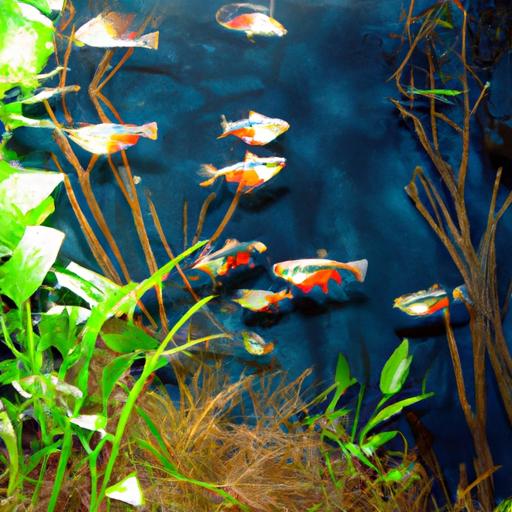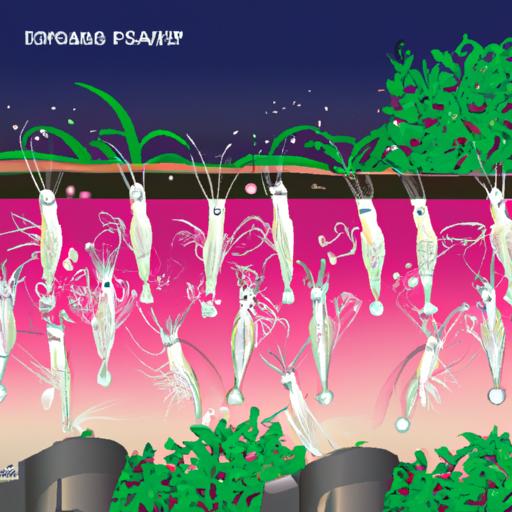
Choosing the Right Live Foods for Coral Nutrition
Enhance the health of your coral reef by choosing the right live foods for coral nutrition. Learn about the benefits and factors to consider in this guide.
Introduction
Are you looking to enhance the health and vibrancy of your coral reef? If so, one crucial factor to consider is providing the right live foods for their nutrition. Live foods play a vital role in supplying essential nutrients, promoting growth, and maintaining the overall well-being of corals. In this article, we will explore the significance of choosing the right live foods and the benefits they offer to these delicate marine organisms.

Factors to Consider when Choosing Live Foods for Coral Nutrition
When it comes to selecting live foods for coral nutrition, several factors need to be taken into account. Understanding the nutritional requirements of corals, the types of live foods available, and the compatibility with different coral species will help you make informed choices. Let’s delve into these factors further.
Nutritional Requirements of Corals
Corals require a diverse range of nutrients to thrive, including proteins, lipids, carbohydrates, vitamins, and minerals. These nutrients are essential for their growth, reproduction, and defense mechanisms. While photosynthesis provides a significant portion of their energy needs, supplementing their diet with live foods is crucial for meeting their nutritional requirements fully.
Types of Live Foods Available
There is a wide variety of live foods available for coral nutrition. Some common options include copepods, brine shrimp, rotifers, phytoplankton, and zooplankton. Each of these live foods offers distinct nutritional profiles. For example, copepods and brine shrimp are rich in proteins, while phytoplankton provides essential vitamins and minerals. It is important to offer a varied diet to corals, ensuring they receive a balanced combination of nutrients.
Compatibility with Coral Species
Different coral species have varying dietary preferences and feeding mechanisms. Some corals are filter feeders, relying on capturing small particles from the water column, while others may actively consume larger prey items. It is crucial to consider the specific requirements of your coral species and select live foods that align with their feeding habits. This will ensure optimal nutrition and promote healthy growth.
FAQ on Choosing the Right Live Foods for Coral Nutrition
What are the best live foods for SPS corals?
SPS (Small Polyp Stony) corals are known for their fast growth and high metabolic rates. To support their nutritional needs, it is recommended to provide a combination of copepods, brine shrimp, and phytoplankton. These live foods offer a rich source of proteins, amino acids, and essential fatty acids, which are vital for the growth and vibrant coloration of SPS corals.
Can I feed my corals with frozen or dry foods?
While frozen and dry foods can be convenient options, they may not provide the same level of nutritional value as live foods. Live foods are typically fresher and offer a wider range of nutrients. However, frozen or dry foods can still be beneficial if they are of high quality and supplemented with other live foods to ensure a varied diet.
How often should I feed my corals with live foods?
The frequency of feeding depends on the specific needs of your corals and the types of live foods being provided. As a general guideline, it is advisable to feed your corals every 2-3 days. However, closely monitoring their response and adjusting the feeding schedule accordingly is crucial. Overfeeding can lead to water quality issues, so it is important to strike a balance.
Are there any specific live foods to avoid?
While many live foods are suitable for coral nutrition, some should be avoided. For instance, certain types of zooplankton may contain harmful parasites or toxins that can negatively impact corals. It is essential to research and source live foods from reputable suppliers to ensure their quality and avoid any potential risks.
Conclusion
Choosing the right live foods for coral nutrition is of utmost importance in maintaining a thriving and vibrant coral reef. By understanding the nutritional requirements of corals, exploring the different types of live foods available, and considering the compatibility with their species, you can make informed choices that promote their overall health and well-being. Remember, a well-balanced and varied diet is key to ensuring optimal nutrition for your corals. So, let’s make the right choices and provide our corals with the live foods they need to flourish.































